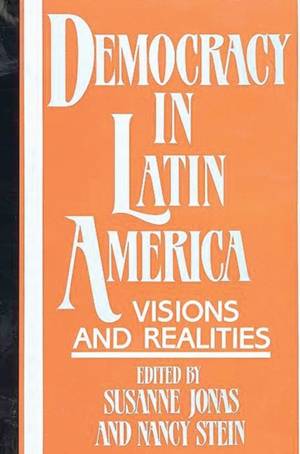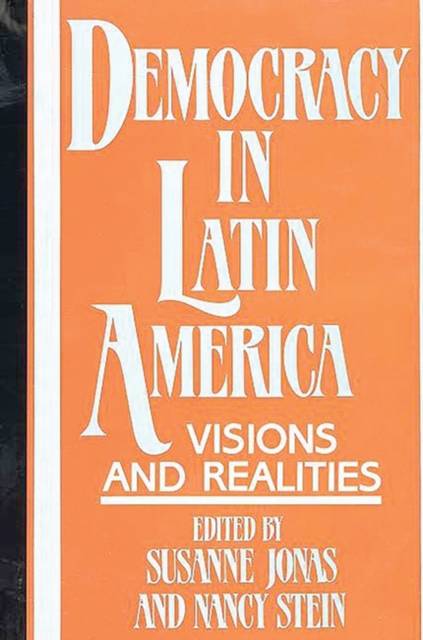
En raison d'une grêve chez bpost, votre commande pourrait être retardée. Vous avez besoin d’un livre rapidement ? Nos magasins vous accueillent à bras ouverts !
- Retrait gratuit dans votre magasin Club
- 7.000.000 titres dans notre catalogue
- Payer en toute sécurité
- Toujours un magasin près de chez vous
En raison de la grêve chez bpost, votre commande pourrait être retardée. Vous avez besoin d’un livre rapidement ? Nos magasins vous accueillent à bras ouverts !
- Retrait gratuit dans votre magasin Club
- 7.000.0000 titres dans notre catalogue
- Payer en toute sécurité
- Toujours un magasin près de chez vous
76,45 €
+ 152 points
Format
Description
Recent events throughout Latin America have placed issues of democracy on centerstage. Collected here for the first time are articles that evaluate different models of democracy, challenging the realities and myths of the practice of democracy in various countries throughout the region. This is a provocative and revealing study of the critical issues in the struggle for democracy and current events in the Third World and the United States.
Through the writings of leading Latin American and U.S. scholars, including James Petras, Pablo Gonzalez Casanova, and Max Azicri, the book addresses such important topics as whether Washington's model democracies are truly democratic, and how Guatemala's civilian regime compares to Nicaragua's revolutionary democracy. By covering countries as diverse as Cuba, Argentina, and Guatemala, the collection adds to an understanding of different models of democracy and challenges traditional methodologies used to evaluate them. Several essays put the issue of democratization in the context of economic crisis, resulting in political redefinitions, and the emergence of the new social movements. The book includes a foreword and introduction by the editors, and concludes with a comprehensive index. It will be a useful resource for courses in political science and Latin American history, and an important addition to college, university, and public libraries.Spécifications
Parties prenantes
- Auteur(s) :
- Editeur:
Contenu
- Nombre de pages :
- 232
- Langue:
- Anglais
Caractéristiques
- EAN:
- 9780897891646
- Date de parution :
- 08-01-90
- Format:
- Livre broché
- Format numérique:
- Trade paperback (VS)
- Dimensions :
- 156 mm x 234 mm
- Poids :
- 331 g

Les avis
Nous publions uniquement les avis qui respectent les conditions requises. Consultez nos conditions pour les avis.






